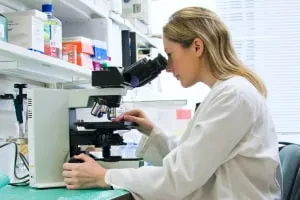
An Introduction Developmental Biology 
Discover the fascinating world of developmental biology with this comprehensive course! From the moment of fertilization to the formation of complex organisms, you'll explore the methods and processes that shape life. Delve into the classification of organisms, their functions, and interactions with the environment. Uncover the history of developmental biology and the scientists who paved the way. Learn about the life cycles of different organisms and the beginnings of experimental embryology. Understand the importance of developmental biology in creating sustainable environments and treating diseases. Whether you're pursuing a career in biology or simply curious about the natural world, enroll today and expand your knowledge! ▼
ADVERTISEMENT
Course Feature
![]() Cost:
Cost:
Free
![]() Provider:
Provider:
Alison
![]() Certificate:
Certificate:
No Information
![]() Language:
Language:
English
Course Overview
❗The content presented here is sourced directly from Alison platform. For comprehensive course details, including enrollment information, simply click on the 'Go to class' link on our website.
Updated in [September 26th, 2023]
What does this course tell?
(Please note that the following overview content is from the original platform)
This course is a basic course on developmental biology that strives to explain the methods that lead from the fertilisation of an egg cell or equivalent to the development of a well-structured and operative multicellular organism. At first, you will learn about the different classification of organisms. Organisms will be described in detail along with their functions, how species come into existence, and their interactions with each other and the natural environment. You will discuss the history of developmental biology and the questions humans seek to understand that sparked an interest in this area. This course aims to answer the age-old question, "What is life?" You will learn about the different scientists who paved the way for this subject. You will get a peek at the different experiments and their conclusions. You will learn which of these experiments are still being used today.
Next, this course will highlight the life cycle of different organisms and the beginnings of experimental embryology. You will see how other organisms, plants and animals alike evolve from seed or egg into adulthood. Developmental biology is the backbone of understanding how plants and animals function daily. This subject area helps create environments where plants can grow all year round to ensure food supply and treat and prevent diseases that affect plants and animals alike. You will learn how and why some people are born with birth abnormalities and some of the reasons that cause this. The many defects that affect humans are explored, and how scientists in the past were able to study how and why these occurrences took place. You will look at the different Nobel prize winners and how their contribution to developmental biology was significant.
Finally, this course will seek to highlight the benefits of developmental biology. Developmental biology is different because of the complexity of living creatures and how they communicate with each other and the environment. Biology is in all aspects of everyday life. We rely on living things and their products for our food, homes, and even the very air that we breathe. It's fascinating to think that numerous rocks and minerals on earth began from living creatures. If you fancy learning about living things and how they relate, studying developmental biology might be the best fit for you. This biology course gives you an in-depth perception of the natural world. It also helps you learn how to conduct analysis, solve problems, and think critically. If you are interested in a career in biology, medicine or just curious about your environment and how things came to be, this course is for you! Why wait? Enrol today!
We considered the value of this course from many aspects, and finally summarized it for you from two aspects: skills and knowledge, and the people who benefit from it:
(Please note that our content is optimized through artificial intelligence tools and carefully reviewed by our editorial staff.)
What skills and knowledge will you acquire during this course?During this course on developmental biology, students will acquire the following skills and knowledge:
1. Classification of organisms: Students will learn about the different classifications of organisms, including their functions, how species come into existence, and their interactions with each other and the natural environment.
2. History of developmental biology: Students will discuss the history of developmental biology and the questions that sparked an interest in this area. They will learn about the different scientists who paved the way for this subject and the experiments they conducted.
3. Life cycle and experimental embryology: Students will study the life cycle of different organisms, including plants and animals, and how they evolve from seed or egg into adulthood. They will also learn about experimental embryology and its role in understanding developmental processes.
4. Understanding plant and animal function: Developmental biology is essential for understanding how plants and animals function daily. Students will learn how this subject area helps create environments for plant growth, ensures food supply, and treats and prevents diseases that affect plants and animals.
5. Birth abnormalities and defects: Students will explore the reasons behind birth abnormalities and defects in humans. They will study the different defects that affect humans and how scientists in the past have studied and understood these occurrences.
6. Nobel prize winners in developmental biology: Students will learn about the significant contributions of Nobel prize winners in the field of developmental biology and how their research has advanced our understanding of life and development.
7. Benefits of developmental biology: The course will highlight the benefits of studying developmental biology, including its role in understanding the complexity of living creatures and their interactions with the environment. Students will gain a deeper perception of the natural world and develop skills in analysis, problem-solving, and critical thinking.
Who will benefit from this course?
This course on developmental biology will benefit individuals who are interested in biology, medicine, or those who are curious about the natural world and how living organisms develop and function.
Specific professions that will benefit from this course include:
1. Biologists: This course provides a comprehensive understanding of the development of multicellular organisms, which is essential knowledge for biologists studying various aspects of life, such as genetics, evolution, and ecology.
2. Medical professionals: Understanding developmental biology is crucial for medical professionals, as it helps them comprehend the formation of human organs and tissues, the causes of birth abnormalities, and the development of diseases. This knowledge can aid in diagnosing and treating patients effectively.
3. Researchers: This course delves into the history of developmental biology and the experiments conducted by scientists in the past. Researchers can benefit from learning about these experiments and their conclusions, as it provides a foundation for designing and conducting their own studies in the field.
4. Environmental scientists: Developmental biology plays a significant role in understanding how organisms interact with their natural environment. Environmental scientists can utilize this knowledge to study the impact of environmental factors on the development and survival of different species.
5. Agricultural professionals: The course highlights the importance of developmental biology in creating environments where plants can grow all year round, ensuring a stable food supply. Agricultural professionals can apply this knowledge to improve crop yields and develop strategies for disease prevention in plants.
6. Curious individuals: If someone is simply curious about the natural world and wants to gain a deeper understanding of how living organisms develop and function, this course provides a fascinating insight into the complexity of life.
Course Syllabus
Introduction to Developmental Biology
This module introduces us to Developmental Biology. It provides insight into the need for the subject area, the different categories used to define the subject area, and Developmental Biology history.Differential Gene Expression
This module will help you understand the biological variations between normal and unhealthy states. Additionally, you will learn about the different factors that affect gene expression.Course assessment
Course Provider
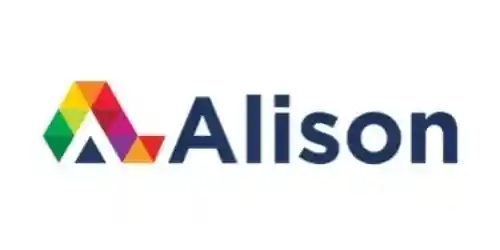
Provider Alison's Stats at AZClass
Discussion and Reviews
0.0 (Based on 0 reviews)
Explore Similar Online Courses

Introductory Stata 2023: Graphics and Data Visualization
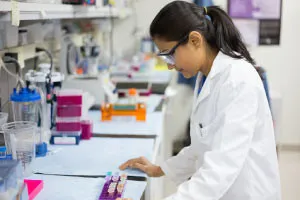
Introduction to Biomedical Research

Python for Informatics: Exploring Information

Social Network Analysis

Introduction to Systematic Review and Meta-Analysis

The Analytics Edge

DCO042 - Python For Informatics

Causal Diagrams: Draw Your Assumptions Before Your Conclusions

Whole genome sequencing of bacterial genomes - tools and applications
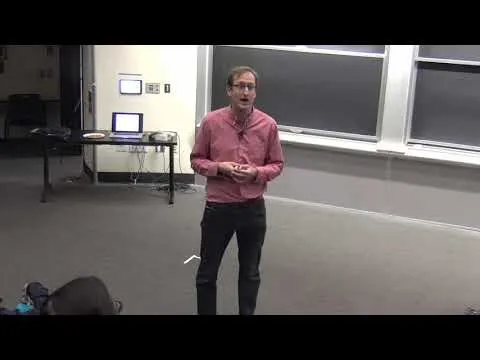
12 Genetics 1 : Cell Division & Segregating Genetic Material
![[LIVE] Learn Genetic Engineering - Part 1: How does it work?](/ccsimg/dcs/img_tools/6b8f615b15bbd31a67f1880c9bd53dd0.webp)
[LIVE] Learn Genetic Engineering - Part 1: How does it work?
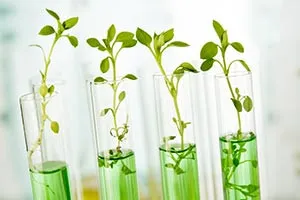

Start your review of An Introduction Developmental Biology